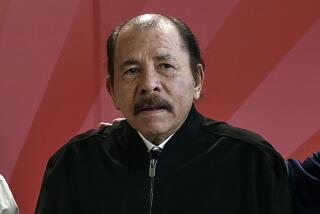U.N. Bosnia Aid Program ‘Inadequate,’ Study Says
WASHINGTON — Its humanitarian operation in Bosnia-Herzegovina has long been the United Nations’ pride. But a prestigious group of policy analysts scrutinized the program and Wednesday pronounced it crippled by international politics and “inadequate in the face of the immense catastrophe.”
In a long report, the analysts, while granting the United Nations was caught in a no-win situation, concluded it “did not manage very well.” The analysts were sponsored by Brown University’s Watson Institute for International Studies and the Refugee Policy Group of Washington.
Larry Minear, the six-member team’s leader, told a news conference that U.N. agencies had no overall plan for operating in Bosnia and “did not know how to act in a war.”
The Office of the U.N. High Commissioner for Refugees, the key agency in humanitarian relief, should have acted sooner to help people flee “ethnic cleansing,” he said. And the agency failed to mount adequate social services such as rape counseling, despite “the use of mass rape as a strategy of war,” the report said.
Minear and his team, which interviewed scores of U.N. officials and other aid workers in the former Yugoslav federation, acknowledged that the U.N. operation “succeeded in reaching a substantial number of those in desperate situations, keeping people alive and easing their suffering.”
The report made it clear that one critical problem was not the United Nations’ fault: Many governments embraced the humanitarian program as a “fig leaf” and “alibi” to hide or excuse their failure to do anything to stop the war. Maria Bellacque-Bellar, a private French relief worker, told the team: “People look at us as if to say, ‘We know you’re feeding us to compensate for the fact that your governments won’t act.’ ”
More to Read
Sign up for Essential California
The most important California stories and recommendations in your inbox every morning.
You may occasionally receive promotional content from the Los Angeles Times.










